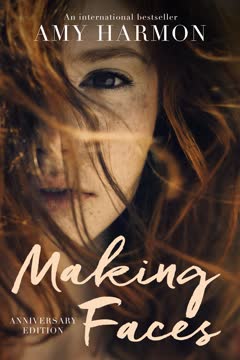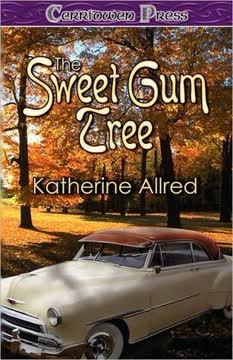Plot Summary
Faces in the Crowd
In Hannah Lake, Pennsylvania, Fern Taylor, a shy, bookish girl, and her cousin Bailey, who has muscular dystrophy, navigate high school's social maze. Fern is invisible to most, but she's always noticed Ambrose Young, the town's wrestling star, whose beauty and talent make him a local legend. The town's rhythms—pep rallies, football games, and small dramas—are interrupted by the looming shadow of 9/11, which shakes even their insulated world. Ambrose's mother works in New York, and the tragedy brings fear and uncertainty close to home. The event marks the end of innocence for Fern, Bailey, Ambrose, and their friends, setting the stage for choices that will define their lives.
The Spider's Funeral
Years earlier, Fern, Bailey, and Ambrose share a formative moment: the funeral of a spider. Ambrose, trying to help, kills a spider that Bailey and Fern have been watching. Bailey, whose illness makes him sensitive to loss, is devastated. Fern and Ambrose help Bailey bury the spider, singing "Itsy Bitsy Spider" and saying a prayer. This small act of kindness and ritual becomes a touchstone for the trio, revealing their capacity for empathy, the fragility of life, and the bonds that will shape their futures. The moment foreshadows the deeper losses and acts of compassion that will define their adult lives.
Letters and Lies
In high school, Fern helps her beautiful friend Rita write love notes to Ambrose. The correspondence grows intimate, with Fern pouring her own heart into the letters, and Ambrose responding with unexpected depth. When Ambrose discovers the truth—that Fern, not Rita, has been writing—the revelation is painful and humiliating for both. The episode exposes Fern's longing to be seen and loved for who she is, not just for her words. Ambrose, wounded by the deception, is forced to confront his own assumptions about beauty, love, and authenticity.
September's Shadow
The events of September 11, 2001, ripple through Hannah Lake, shaking the foundation of the town's security. Ambrose's mother survives the attacks, but the trauma lingers. The senior class, including Ambrose and his friends, is forced to reckon with mortality and the meaning of heroism. The attack plants a seed in Ambrose—a desire to do something meaningful, to be a hero in a world suddenly full of uncertainty. The shadow of war and loss will soon touch them all, changing the course of their lives.
Wrestling with Heroes
Ambrose is a wrestling prodigy, carrying the hopes of his town and his father. Yet the pressure to be perfect, to always win, becomes a burden. Bailey, who can never wrestle, idolizes Ambrose but also sees the cost of being a hero. As Ambrose leads his team to state championships, he feels increasingly trapped by others' dreams for him. The wrestling mat becomes both a stage for glory and a crucible for self-doubt. Ambrose's eventual decision to join the military, taking his friends with him, is both an act of courage and a flight from the suffocating expectations of home.
The List of Living
Bailey, aware that his disease will shorten his life, creates a list of things he wants to do—some whimsical, some profound. Fern and Bailey share dreams and fears, supporting each other through the challenges of growing up different. Bailey's list becomes a symbol of hope, resilience, and the determination to live fully despite limitations. His humor and wisdom inspire those around him, especially Fern, who learns from Bailey how to face life's hardships with grace and gratitude.
The Fire and the Fall
Ambrose and his four closest friends—Grant, Jesse, Beans, and Paulie—enlist and are sent to Iraq. The camaraderie of the wrestling room is replaced by the brotherhood of soldiers. Tragedy strikes when a roadside bomb kills all but Ambrose, who is left physically and emotionally scarred. The loss devastates Hannah Lake, and Ambrose returns home a changed man, haunted by guilt and grief. The town, too, is marked by absence, struggling to honor the fallen while supporting the broken survivor in their midst.
After the Blast
Ambrose comes home with half his face destroyed, his beauty gone, his sense of self shattered. He hides from the world, working nights in his father's bakery, avoiding old friends and the curious stares of townspeople. Fern, now grown into her own quiet beauty, reaches out to him with compassion and persistence. Through small acts—whiteboard messages, shared memories, and gentle humor—she helps Ambrose begin to heal. Their connection deepens, but Ambrose's shame and self-loathing threaten to keep him isolated.
Making Faces, Making Peace
Fern and Ambrose rediscover each other through the game of "making faces," a childhood ritual that becomes a metaphor for revealing true selves. Fern's acceptance of Ambrose's scars, both visible and hidden, allows him to lower his defenses. Their friendship blossoms into love, but both must confront their insecurities—Fern's "ugly girl syndrome" and Ambrose's fear of being unlovable. Bailey, ever the wise observer, encourages them to embrace happiness and let go of guilt. Together, they learn that real beauty is found in authenticity and courage.
The Whiteboard Dialogues
Fern and Ambrose communicate through questions and quotes on a bakery whiteboard, rekindling the intimacy of their earlier letters. Their exchanges—playful, philosophical, and sometimes raw—become a lifeline for Ambrose, who is still wrestling with survivor's guilt and the burden of being "the one who lived." Fern's persistence and empathy help him see that he is more than his scars, and that love can survive even the deepest wounds. Their dialogue is a testament to the power of words to heal and connect.
Pancakes at Midnight
Fern, Ambrose, and Bailey share late-night pancakes, drive-in movies, and small-town rituals. These moments of normalcy are precious, especially as Bailey's health declines. Ambrose begins to rejoin the world, finding comfort in friendship and the simple pleasures of life. Fern's love gives him the courage to imagine a future, while Bailey's humor and acceptance remind them all to savor the present. The trio's bond is a source of strength as they face the challenges ahead.
The Weight of Scars
Ambrose struggles to forgive himself for surviving when his friends did not. Visits to their graves, conversations with Bailey, and the support of Fern and Coach Sheen help him begin to let go of guilt. Ambrose returns to the wrestling room, relearning the sport with his new limitations. The process is painful but redemptive, as he discovers that heroism is not about perfection, but about resilience and humility. Fern's unwavering belief in him becomes his anchor.
Bailey's Last Ride
Bailey, determined to help his friend Rita escape an abusive marriage, risks his life to save her child. In a harrowing sequence, Bailey is pursued by Rita's husband and ultimately drowns, unable to save himself from his wheelchair. His death devastates Fern, Ambrose, and the entire town. Yet Bailey's life and final act are celebrated as heroic, a fulfillment of his own list and a testament to the impact one person can have. His loss leaves a void, but also a legacy of love and bravery.
The Cost of Courage
In the aftermath of Bailey's death, Fern and Ambrose confront their own pain and the evil that still lurks in their community. Rita survives, and her abuser is brought to justice, but not before Fern herself is attacked and Ambrose must come to her rescue. The ordeal tests their strength and deepens their bond. Through shared suffering, they find the courage to move forward, honoring Bailey's memory by living fully and loving fiercely.
Love in the Light
Fern and Ambrose's relationship matures as they learn to love each other openly, without shame or fear. They support each other through grief, celebrate small victories, and dream of a future together. Ambrose returns to wrestling, not as a hero on a pedestal, but as a man who has learned the value of humility and perseverance. Fern, inspired by Bailey and Ambrose, pursues her own dreams of writing and self-acceptance. Together, they discover that true love is not about rescuing or being rescued, but about walking side by side through darkness and light.
The Hero's Return
Ambrose honors his fallen friends by tattooing their names across his heart, a permanent reminder of their lives and his own responsibility to live well. He returns to competitive wrestling, overcoming physical and emotional obstacles. Fern, too, finds ways to keep Bailey's memory alive, marking her own heart with his name. Their acts of remembrance are not about clinging to the past, but about carrying forward the lessons of love, loss, and resilience.
Names Across the Heart
The community gathers to mourn Bailey, celebrate his life, and support each other in healing. Ambrose speaks at Bailey's funeral, sharing the wisdom he has gained through suffering. Fern and Ambrose, now engaged, look to the future with hope, determined to honor those they have lost by living with gratitude and courage. The story comes full circle as they marry, surrounded by friends, family, and the enduring presence of those who have shaped their lives.
Beauty Remade
In the end, Fern and Ambrose build a life together, raising a son named Bailey and teaching him that heroism comes in many forms. The scars they bear—physical and emotional—are not marks of shame, but of survival and transformation. The story closes with the recognition that true beauty is forged in adversity, and that love, in all its imperfect forms, is the greatest act of courage.
Characters
Fern Taylor
Fern is a shy, bookish girl who grows up feeling invisible and unattractive in her small town. Her deep empathy and creativity are shaped by her close relationship with her cousin Bailey, whose illness teaches her about fragility and courage. Fern's unrequited love for Ambrose is both a source of pain and inspiration, leading her to express herself through writing. Over time, Fern transforms from a self-effacing girl with "ugly girl syndrome" into a woman who embraces her own worth and beauty. Her journey is one of self-acceptance, vulnerability, and the discovery that true love is rooted in authenticity and compassion.
Ambrose Young
Ambrose is the town's golden boy—handsome, talented, and burdened by the weight of others' expectations. His decision to join the military after 9/11 is driven by a desire to be a hero, but war leaves him physically disfigured and emotionally shattered. Ambrose's struggle with guilt, shame, and the loss of his friends isolates him, but Fern's unwavering kindness helps him begin to heal. Through their relationship, Ambrose learns that heroism is not about perfection or appearance, but about humility, resilience, and the courage to love and be loved despite scars.
Bailey Sheen
Bailey, Fern's cousin and best friend, is born with muscular dystrophy. His physical limitations are matched by a sharp mind, a wicked sense of humor, and a profound capacity for empathy. Bailey's "list" of things to do before he dies is both poignant and inspiring, reflecting his determination to live fully. He serves as a moral compass for Fern and Ambrose, teaching them to value the present, face hardship with grace, and find meaning in small acts of kindness. Bailey's death is a devastating loss, but his legacy endures in the lives he touched.
Rita Marsden
Rita is Fern's childhood friend, admired for her beauty but struggling with her own insecurities. Her relationships are shaped by a longing for validation, leading her into an abusive marriage. Rita's journey is one of survival and self-discovery, as she learns to break free from cycles of harm and reclaim her agency. Her friendship with Fern and Bailey is a source of support and healing, and her eventual escape from abuse is a testament to the power of community and courage.
Elliott Young
Ambrose's adoptive father, Elliott, is a baker who provides stability and unconditional love. His own insecurities about not being Ambrose's biological father are offset by his deep commitment to his son. Elliott's wisdom, humility, and work ethic serve as a model for Ambrose, especially in the aftermath of war and loss. His support is instrumental in Ambrose's journey toward healing and self-acceptance.
Mike Sheen (Coach Sheen)
Bailey's father and the high school wrestling coach, Mike is a figure of authority and compassion. He balances the demands of coaching with the challenges of raising a son with a terminal illness. His guidance shapes Ambrose's character, teaching him the values of perseverance, humility, and teamwork. Mike's grief over Bailey's death is profound, but he continues to support Fern and Ambrose, embodying the resilience of the community.
Beans (Connor O'Toole)
Beans is one of Ambrose's closest friends, known for his humor and irreverence. His lightheartedness masks deeper insecurities, and his death in Iraq is a blow to the group's sense of invincibility. Beans' memory lingers as a reminder of the randomness of loss and the importance of cherishing every moment.
Grant Nielson
Grant is the quiet anchor of Ambrose's circle of friends, often providing a moral center. His decision to enlist is motivated by loyalty and a desire to support his family. Grant's death in Iraq is a source of enduring grief, but his example inspires Ambrose to live with integrity and purpose.
Jesse Jordan
Jesse is the most outgoing of Ambrose's friends, known for his athleticism and devotion to his girlfriend Marley. His death leaves behind a young son and a grieving partner, highlighting the far-reaching consequences of war. Jesse's memory is honored through acts of remembrance and the continuation of his family's story.
Paulie Kimball
Paulie is the dreamer of the group, more interested in music than wrestling or war. His gentle nature and intuition make him a source of comfort for his friends. Paulie's death is especially hard for Ambrose, who often recalls Paulie's words and presence as a guiding force in moments of crisis.
Plot Devices
Dual Timelines and Flashbacks
The novel employs a non-linear structure, moving between childhood memories, high school years, and the aftermath of war. Flashbacks to formative moments—such as the spider's funeral, the writing of love notes, and wrestling matches—provide context for the characters' present struggles. This structure allows the reader to see how early experiences shape later choices, and how the past continues to inform the present.
Letters, Notes, and Whiteboard Messages
The exchange of letters—first as a ruse, later as genuine communication—serves as a central motif. The whiteboard dialogues in the bakery echo the earlier love notes, allowing Fern and Ambrose to connect in a safe, playful, and intimate way. These written exchanges reveal vulnerabilities, foster understanding, and ultimately help heal old wounds.
Symbolism of Faces and Scars
The motif of faces—beautiful, scarred, or overlooked—runs throughout the novel. Ambrose's disfigurement forces him to confront the superficiality of beauty and the deeper meaning of identity. Fern's journey from feeling ugly to embracing her own worth parallels Ambrose's struggle to accept his scars. The act of "making faces" becomes a metaphor for revealing true selves and finding acceptance.
The List and the Tattoo
Bailey's list of things to do before he dies is both a literal and symbolic device, representing the human urge to leave a mark and live meaningfully. The tattoos that Ambrose and Fern get—names across the heart—are acts of remembrance, binding them to those they have lost and to each other. These devices underscore the themes of legacy, grief, and the enduring power of love.
Wrestling as Metaphor
Wrestling is more than a sport in the novel; it is a metaphor for struggle, resilience, and the fight to overcome adversity. The discipline, humility, and teamwork required on the mat mirror the challenges the characters face in life. Ambrose's return to wrestling after his injury is a powerful symbol of redemption and the choice to keep fighting, even when victory seems impossible.
Foreshadowing and Irony
The novel uses foreshadowing—such as the spider's funeral, Bailey's list, and the recurring references to heroism—to prepare the reader for later events. Irony abounds: the beautiful boy becomes scarred, the overlooked girl becomes the source of salvation, and the hero's journey is marked not by triumph, but by humility and love.
Analysis
Making Faces is a deeply emotional exploration of what it means to be beautiful, to be heroic, and to be loved. Through its interwoven narratives of childhood innocence, adolescent longing, and adult trauma, the novel challenges conventional notions of worth and identity. The characters' journeys—from Fern's self-doubt to Ambrose's self-loathing, from Bailey's resilience to Rita's survival—offer a mosaic of human experience marked by suffering and grace. The story insists that true beauty is forged in adversity, that heroism is found in humility and kindness, and that love is both the source of our deepest wounds and our greatest healing. In a world obsessed with appearances and achievement, Making Faces reminds us that the most important battles are fought within, and that the scars we bear—visible or hidden—are not marks of shame, but of survival and transformation. The novel's ultimate lesson is one of hope: that even in the face of unimaginable loss, we can choose to live, to love, and to make something beautiful of our brokenness.
Last updated:
Review Summary
Making Faces is a deeply emotional and thought-provoking novel that explores themes of beauty, love, loss, and self-acceptance. Readers praise Harmon's beautiful writing, memorable characters, and powerful storytelling. The book follows Fern, an "ugly duckling," and Ambrose, a handsome athlete turned war veteran, as they navigate life's challenges and find love. Many reviewers were moved to tears by the story's emotional depth and appreciated its messages about inner beauty and resilience. The character of Bailey, Fern's cousin with muscular dystrophy, was particularly beloved for his humor and strength.









